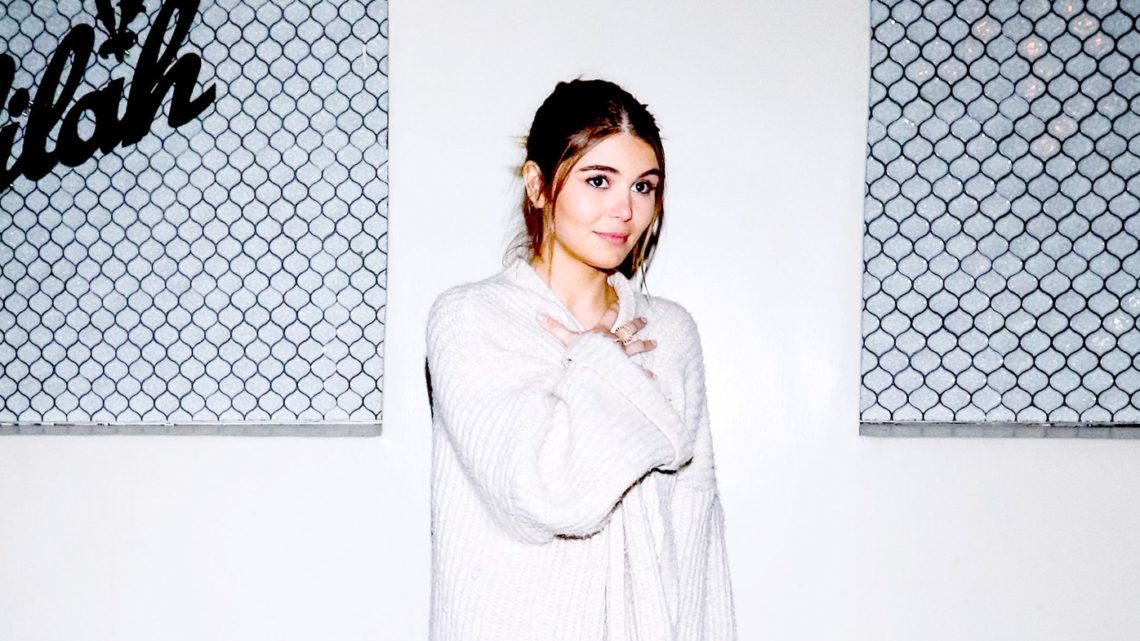
Colleges Need Influencers, but Do Influencers Need College?
March 17, 2019Among those called out by The New York Times earlier this week for allegedly scamming their kids' way into college were the parents of Olivia Jade Giannulli. Giannulli, as her 2 million YouTube followers know, has a successful career as a lifestyle vlogger. You'd be forgiven for wondering if she even needs college. When she first got accepted to the University of Southern California in 2018, she seemed ambivalent herself.
“I don’t know how much of school I’m going to attend,” she said in a YouTube video last August about starting school in the fall. “But I do want the experience of game days and partying.” After a pause she added with a laugh, “I don’t really care about school, as you guys all know.” But, she said, she’d meet with her deans and hoped she could “balance it all.”
By “it all” she meant classes and her busy career. Since her mother—Full House actress Lori Loughlin—was indicted on Tuesday, Giannulli has become the most high-profile on-campus social media influencer, mocked as well as envied. She’s far from alone. Colleges and universities are crawling with influencers, and both sides are out to make the most of the relationship.
Colleges try to leverage the social media savvy of their students with “social media ambassador” programs that help them advertise to prospective new students, raise the schools’ profiles, and educate their current students about school programs. And for some influencers, like Giannulli, college can be a windfall, landing them brand deals to market dorm furnishings, Victoria’s Secret underwear, and tooth-straightening solutions to their fellow students. For others, college just gets in the way of their real passion.
Becoming a social media star is the fourth most popular career aspiration for Gen Z, ranking well above actor or pop star. By the time many of them start applying to colleges, they’ve already learned how to vlog, how to edit a thumbnail, and how to amass followings. (Olivia Jade Giannulli has released a makeup palette and landed brand deals with Amazon. She’s 19.)
“Influencers are really well known on campus, especially by incoming freshmen,” says mononymic influencer Markian, who makes (surprisingly old-fashioned) Facebook videos like “What It’s Like to Have a Latina Girlfriend” for an audience of more than 2 million. According to Markian, watching on-campus vloggers is how many students get a sense of the university’s culture—sort of like a franker, digital version of a campus tour. Once those students matriculate, they become customers willing to spend heavily on a wide range of nonessential goods. When Markian started an influencer club on USC’s campus, it attracted everyone from photographers to digital marketers to musicians. With that diverse a talent pool, brands from American Eagle to Nestlé have been able to buy into this system, hoping to make lifelong customers of impressionable, influenceable students.
Colleges themselves are in some ways just another brand hoping to reach these young minds. Admissions officers are desperate to make the most of social media as a recruiting tool. “One of the things we constantly talk about in our marketing department is, How do we utilize these tools where students spend so much of their time in the admission process?” says Stefanie Niles, vice president for enrollment and communications at Ohio Wesleyan and president of the National Association of College Admissions Counseling. The answer is increasingly through partnerships with charismatic students, who produce videos, do brand-account takeovers, and serve as ambassadors to the outside world. Niles’ son, a high school senior, watched Facebook videos of students and campus tours on YouTube to help decide where to apply.
Ohio Wesleyan does these kinds of partnerships, as do many other higher-education institutions across the country, but they’re all still trying to figure out the best way to use influencers and microinfluencers on their campuses. “We just had a college reach out to us about this. I think colleges are like, ‘Wait, we can have our students promote us? Oh my god!’ I think it’s a trend,” says Brian Freeman, CEO of Heartbeat, a microinfluencer platform with 200,000 users, 45 percent of whom are college students. And colleges are trying to achieve different things. Some want to reach new students; others want to change a narrative about their school, Freeman says, using microinfluencers on campus to promote academics, say, rather than the partying scene. Others, like UC Berkeley, harness alumni influencers to help raise money.
The University of Michigan partners with students every week to promote school projects across different school social accounts and reach potential new applicants. “Never do we factor in, boy that person has 1.2 million followers, we should get them,” says Nikki Sunstrum, who directs social media at U of M. Instead, they care about getting people who are good at social media, charismatic to watch, and enthusiastic about the school. In other words, the kinds of things likely to make someone a popular influencer.
Sunstrum says that with influencers, like with other celebrity students, the college is cognizant of respecting their privacy, so they try not to get in the way of their having a normal college experience. That experience, after all, is the best advertising these influencers can give to the schools. “Ninety-nine percent of the posts on social about the University of Florida are from people who are not on my team,” says UF social media director Todd Sanders, who doesn’t directly partner with campus influencers for a reason. “We cherish their creations more than our ‘official’ content because it's authentic. To take that pureness and alter it in any way for recruitment purposes, at least to me, taints it.”
Some schools, like private business school Babson College, pay students to spread the good word. Niles says that’s common. “I have known students at schools who have gotten a stipend to be a vlogger or do a monthly blog,” says Niles, who likens it to schools paying their tour guides. Done right, programs like this can appeal to students who want to pursue a career in marketing. They get experience, and the school gets what it most needs to attract incoming freshman: authentic storytelling from students.
But it’s not Amazon brand partnership money. The most successful college-aged influencers seem underwhelmed by universities’ offerings—educational and financial both. Markian is a college dropout. “I took a marketing class in 2017 and it didn’t touch anything even related to social media,” he says. “There’s no question that college is unnecessary. I dropped out because it was hindering my business.”
Dropping out of school to influence full-time is increasingly common. Petar Mandich, chief talent officer at Addition, who manages high-profile YouTubers like iJustine and Joey Graceffa, enjoyed his college experience but admits much of what he learned “doesn’t really apply because technology has changed so much.” Plus, it’s hard to manage a daily upload schedule while taking six classes, and if influencing already pays your bills, why struggle?
The long-term benefits of college (besides, you know, an education) are supposed to be the connections you make, along with the glossy hireability a degree adds to your résumé. But even for relatively traditional corporate positions at companies like Google, Apple, IBM, and Penguin Random House, four-year degrees are no longer a requirement. Graduating from college is even less important in the evolving world of adult influencing, and that includes the seven-figure brand deals happening at its highest levels. “No brand has ever asked to look at a résumé or a transcript,” Mandich says. “They do ask for examples of past brand partnerships.” If you want to be an influencer, your YouTube channel and Instagram page are the only résumé you really need.
Even college admissions specialists like Niles see the value in the social media résumé. "She has a presence, she has distinguished herself,” Niles says of Giannulli. “She has, in some ways, worked hard and demonstrated commitment to an interest. So, yes, that could certainly be a part of one’s record that admissions could consider." Social influence can be another valid extracurricular for your application.
That is, if the rest of your record isn’t a total fabrication.
Updated 3-14-19, 9 am PT: This article was updated to correct a statistic about how many children want to be YouTubers.
Read more: http://www.wired.com/

